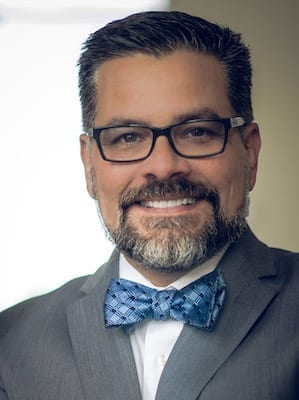
The Church of England is considering using gender-neutral language when referring to God in its liturgy. Like other traditions and throughout history, God is referred to using male pronouns.
The Washington Post reported on a statement provided by the Church of England: “Christians have recognized since ancient times that God is neither male nor female. Yet the variety of ways of addressing and describing God found in scripture has not always been reflected in our worship.”
The Bible uses male references such as “Father” when referring to the Great Spirit, but other verses mention the feminine side of the divine. Good Faith Media adopted gender-inclusive language in reference to God in 2018.
Jesus, for example, underscores the fiercely protective side of God: “Jerusalem, Jerusalem, the city that kills the prophets and stones those who are sent to it! How often have I desired to gather your children together as a hen gathers her brood under her wings, and you were not willing! See, your house is left to you, desolate” (Matthew 23:37-39).
The Church of England reported to The New York Times that its Liturgical Commission has been considering adding general neutral language since 2014.
When pressed about how these additions might “change” the liturgy, a spokesperson responded, “There are absolutely no plans to abolish or substantially revise currently authorized liturgies, and no such changes could be made without extensive legislation.”
In other words, the Church of England expects push-back from the more conservative wing of the church. Accusations of “wokeness” and “public relations needs” surfaced in response. Some critics think this is simply an attempt to attract younger people, as emerging generations have fled the church for decades.
While I applaud the addition of gender-neutral language when referring to God, this most recent debate has me thinking again. Who is God? What is God? Have we let the Euro-Anglicized and patriarchal church define God?
In her book Thy Queendom Come, Kyndall Rae Rothaus addresses this problem. Good Faith Media reviewed her book, with Cally Chisholm concluding: “We don’t stop to think about why we envision God as inherently more masculine than feminine. We never stop to ask how that informs our attitude towards others and how it feeds into stereotypes and social constructs.”
As an Indigenous person of faith, I find these questions about divine identity very intriguing. My Indigenous ancestors were forced to assimilate into the Euro-Anglicized patriarchal understanding of God. If they refused, they were killed. In most cases, they were not even allowed to assimilate.
As I have grown older and learned more about my Indigenous culture, I gravitate toward their understanding and definitions of God and divine engagement within life. Indigenous understandings of God are more reasonable and relatable – especially as Spirit Creator relates to the entire symbiotic creation.
God is not seen as a king upon a throne, a very Euro-Anglicized patriarchal idea, but as a benevolent Creator, existing and relating to the symbiotic world. God is neither male nor female. Spirit Creator just is.
Maybe this is why, when pressed by Moses to self-identify, God offered the identity of “I am who I am” (Exodus 3:14). The Hebrew word hayah is defined as “to fall out, come to pass, to become, to be.” God was not about to self-identify based on gender, knowing half of the creation would be left scratching their heads.
No, God exists not as human flesh (or gender) but as a physical spirit moving within and outside the space-time continuum. Throughout history, some have called this divine presence by many names. Others identified God as providence. Still others, like my ancestors, call God the Great Spirit.
As humans continue the never-ending exercise of identifying God, we mustn’t neglect the most basic definition. As a Jesus-follower who does his best to follow the Christian scriptures, John helps me greatly at this point.
In 1 John 4:8, the great evangelist writes, “God is love.” Maybe John was onto something. Maybe he, too, was tired of old debates. Maybe he saw the dangers of the patriarchy up close.
Maybe he knew God’s identity would be used by kings, popes and scholars to oppress others. If so, the “God is love” identity is perfect.
Who is God? What is God?
God, my friends, is love. If only humanity could agree on that truth, then the world would be a much better place.
CEO of Good Faith Media.

